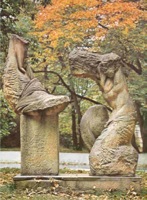Difference between revisions of "Courteous"
From Nordan Symposia
Jump to navigationJump to searchm (Text replacement - "http://nordan.daynal.org" to "https://nordan.daynal.org") |
m (Text replacement - "http://" to "https://") |
||
| Line 3: | Line 3: | ||
==Origin== | ==Origin== | ||
[https://nordan.daynal.org/wiki/index.php?title=English#ca._1100-1500_.09THE_MIDDLE_ENGLISH_PERIOD Middle English] ''corteisie'', from Anglo-French ''curteisie'', from ''curteis'' | [https://nordan.daynal.org/wiki/index.php?title=English#ca._1100-1500_.09THE_MIDDLE_ENGLISH_PERIOD Middle English] ''corteisie'', from Anglo-French ''curteisie'', from ''curteis'' | ||
| − | *[ | + | *[https://en.wikipedia.org/wiki/13th_century 13th Century] |
==Definitions== | ==Definitions== | ||
*1a : [[behavior]] marked by polished [[manners]] or [[respect]] for others : courteous behavior | *1a : [[behavior]] marked by polished [[manners]] or [[respect]] for others : courteous behavior | ||
| Line 10: | Line 10: | ||
:b : [[consideration]], [[cooperation]], and [[generosity]] in providing something (as a [[gift]] or [[privilege]]); also : [[agency]], means —used chiefly in the phrases through the courtesy of or by courtesy of or sometimes simply courtesy of | :b : [[consideration]], [[cooperation]], and [[generosity]] in providing something (as a [[gift]] or [[privilege]]); also : [[agency]], means —used chiefly in the phrases through the courtesy of or by courtesy of or sometimes simply courtesy of | ||
==Description== | ==Description== | ||
| − | '''Courtesy''' comes from old french 'courteis' (12th century) is gentle [[politeness]] and courtly [[manners]]. In the [ | + | '''Courtesy''' comes from old french 'courteis' (12th century) is gentle [[politeness]] and courtly [[manners]]. In the [https://en.wikipedia.org/wiki/Middle_Ages Middle Ages] in Europe, the [[behaviour]] expected of the gentry was compiled in [https://en.wikipedia.org/wiki/Courtesy_book courtesy books]. One of the most influential of these was ''[https://en.wikipedia.org/wiki/The_Book_of_the_Courtier Il Cortegiano]'' (The Courtier) which not only covered basic [[etiquette]] and decorum but also provided models of sophisticated [[conversation]] and [[intellectual]] [[skill]]. |
| − | In [ | + | In [https://en.wikipedia.org/wiki/Medieval_India medieval India] too, [[nobility]] and [[royalty]] were expected to display courteous [[behaviour]]. The [[concept]] was described by the [[Sanskrit]] word, ''daksinya'', which meant "[[kindness]] and [[consideration]] expressed in a sophisticated and elegant way". |
[[Category: General Reference]] | [[Category: General Reference]] | ||
Latest revision as of 23:45, 12 December 2020
Origin
Middle English corteisie, from Anglo-French curteisie, from curteis
Definitions
- b : a courteous and respectful act or expression
- 2a : general allowance despite facts : indulgence <hills called mountains by courtesy only>
- b : consideration, cooperation, and generosity in providing something (as a gift or privilege); also : agency, means —used chiefly in the phrases through the courtesy of or by courtesy of or sometimes simply courtesy of
Description
Courtesy comes from old french 'courteis' (12th century) is gentle politeness and courtly manners. In the Middle Ages in Europe, the behaviour expected of the gentry was compiled in courtesy books. One of the most influential of these was Il Cortegiano (The Courtier) which not only covered basic etiquette and decorum but also provided models of sophisticated conversation and intellectual skill.
In medieval India too, nobility and royalty were expected to display courteous behaviour. The concept was described by the Sanskrit word, daksinya, which meant "kindness and consideration expressed in a sophisticated and elegant way".
